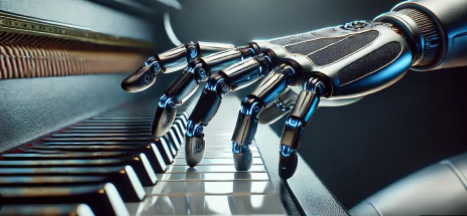Rauf Hameed says AI is not just a passing trend; it is the newest, most potent force driving the continued evolution of our universal language.
Music has always been a mirror of human innovation. From the invention of written notation that allowed composers to scale their work, to the recording technology that democratized listening, every technological leap has redefined what music is and how we experience it. Today, we stand at the precipice of the most profound shift yet: the age of Artificial Intelligence (AI) in musical creation.
From Tool to Co-Creator
Historically, the role of technology in music was largely passive—instruments, recording equipment, and distribution channels. AI, however, is a creative partner. It enters the studio as a generative force, capable of composing, arranging, and even mastering tracks based on learned data.
The initial fear that AI would replace human artists is quickly being replaced by the reality of collaboration.
- Algorithmic Composition: AI models can analyze thousands of hours of music across genres, identifying patterns of harmony, rhythm, and melody. A musician can now input a simple four-bar motif and instantly generate a dozen fully orchestrated variations, dramatically accelerating the creative process. This functions as an infinite source of inspiration, helping artists break through creative blocks.
- Hyper-Personalization: In media like film, video games, and advertising, AI is already generating dynamic, adaptive soundtracks that change in real-time based on the user’s actions or emotional state. This level of personalized audio experience was unimaginable a decade ago.
- Virtual Producers and Engineers: AI-powered tools are now capable of professional-level mixing and mastering, adjusting equalization, compression, and loudness. This democratizes music production, allowing independent artists to achieve polished, commercial-ready sound without expensive studio time.
The New Creative Paradigm
The true impact of AI lies in its ability to push the boundaries of genre and form. By synthesizing elements from disparate musical traditions—a baroque counterpoint fused with a tabla rhythm and a synth-wave bassline—AI facilitates the creation of entirely new hybrid genres that no single human artist might have conceived.
However, this evolution brings crucial questions:
- Authenticity and Emotion: While AI can mimic emotion perfectly, the source of the music is an algorithm. The value of human experience—grief, joy, struggle—encoded in a song remains the core of its cultural resonance. AI-assisted music still requires the human touch for its soul.
- Copyright and Ethics: The legal and ethical framework for using large musical datasets to train AI is rapidly developing. Who owns the copyright to a composition co-created by a human and an algorithm? These challenges are shaping new standards for the music industry.
The Future is Augmentation
The evolution of music has never been about standing still; it’s about adopting new technologies to deepen expression. Just as the piano didn’t replace the voice, and the synthesizer didn’t eliminate the guitar, AI will not erase the artist.
Instead, AI is providing the modern musician with an unparalleled toolbox. It is a sophisticated, algorithmic muse that frees artists from the technical complexities of arrangement and production, allowing them to focus entirely on their vision and narrative.
The next global hit, the next great sonic movement, will almost certainly be one that acknowledges the past while boldly embracing its new, intelligent co-creator. The evolution of music continues, driven by the algorithms of the future and the enduring creativity of the human heart.

No responses yet